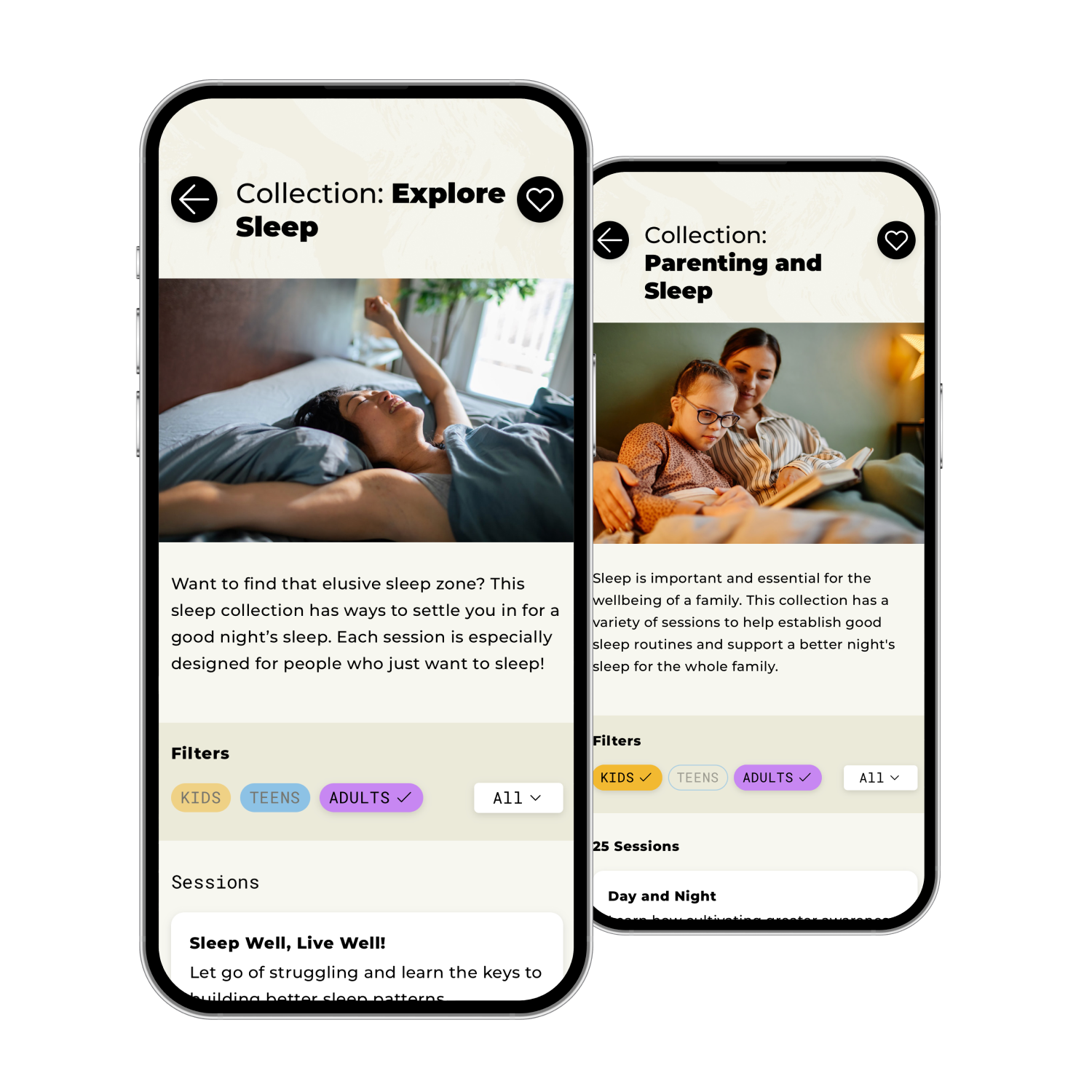Why Sleep Matters
Sleep affects everything—from mood and memory to energy and emotional resilience. Poor sleep is a common challenge—whether it’s trouble falling asleep or waking in the night—which can leave us feeling foggy, flat, and disconnected.
Sleep is a vital part of mental fitness, helping our minds and bodies recharge so we can navigate the day with focus and calm. Better sleep starts long before our head hits the pillow, shaped by how we support ourselves emotionally and physically throughout the day and night.
Stress, overstimulation and emotional overwhelm can all affect the quality of our sleep, leaving us tired, frustrated, or anxious—something both kids and adults experience. With the right tools and a little practice, we can build healthier sleep habits to feel more energised, focused, and ready for the day.











